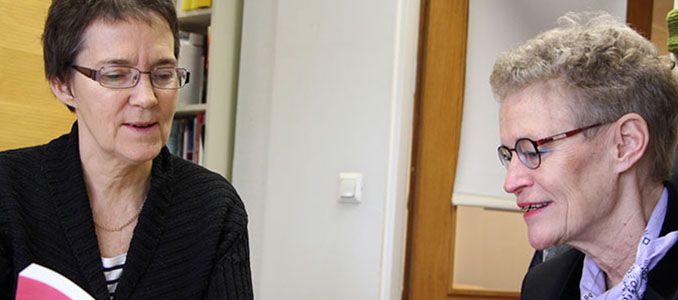
McDonald’s responsibility exceeds expectations
The TPR Inno research project investigated the effect of responsibility certificates on consumers’ purchase decisions and their contribution to the change towards more responsible business practices.
Text and images: Mikko Salminen, journalism student
The research project was financed by Tekes and it examined the value chains of five different product groups. The value chains of coffee, sugar and beef were examined globally, and those of salmon and fast food at a more local level. The research focused especially on the connection between food safety and social responsibility standards and new innovations.
The aim of the research was to gain deeper insight into how the various responsibility certificates – such as the Fairtrade label – contribute towards more responsible business practices.
One of the findings concerning coffee was that the effect of the different certification and quality assurance systems on the bottom of the value chain depended to a large extent on consumer behaviour and regulations in the different countries.
– In Brazil, for instance, the implementation of the UTZ certification system and a comprehensive turn towards sustainable development are hindered by the established practices. It is really hard to explain the point of complicated certification systems to a local farmer who has been farming coffee beans in a certain way for years, using the traditional methods that have been used for centuries, Project Manager Kaisa Sorsa from Turku University of Applied Sciences explains.
Pioneering companies in responsible business
Large companies play an important role in global value chains. Whenever a large company adopts responsibility requirements and different standards, these requirements and standards will also concern the other companies in its value chain. This is why Sorsa thinks there should be a rewarding system for pioneering companies.
In the field of fast food chains, McDonald’s is a leader in food safety and the development of sustainability standards, especially in Europe. McDonald’s cannot escape its reputation, although it keeps setting regulations that are sometimes even tighter than local food legislation, Sorsa reminds us.
In Finland, large retail companies like Kesko and the S Group audit their own suppliers in an increasingly active manner. This is their way of ensuring that the companies behind the responsibility certificates really adhere to the agreed responsibility programmes. The same is also true on a global scale.
Distrust in legislative culture
One of the key aims of the TPR Inno research project was to use the results as the basis for political recommendations on the links between the different standards and legislation. In other words, to provide instructions for the authorities on how to accelerate the change towards sustainability by steering the operation of food chains.
– There is distrust and disbelief on privately executed regulation in the legislative culture. This is a pervasive stereotype that should be changed. The private sector invests so much money in the development and maintenance of certification systems that the trend cannot be dismissed as mere ‘greenwashing’, Sorsa continues.
Other actions recommended by the project authors include improving the standing of small and medium sized enterprises, for example, with a variety of incentives. Without financial support, SMEs struggle to find the resources to develop certification systems.
The TPR Inno research project will be active until May and the final report is expected to be released in September.


